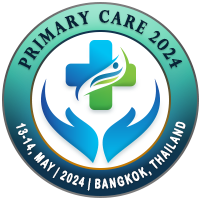
Krishi Gowdra Revannasiddappa
Zulekha Hospital, Dubai, United Arab EmiratesTitle: Human Papilloma Virus vaccines for prevention of cancer: The future and challenges
Abstract
Background: Human Papilloma Virus (HPV) infection being the most common viral infection of the reproductive tract is responsible for almost all cases of cervical cancer, 90% of anal, 78% of vaginal, 25% of vulvar, 50% of penile, 60% of oropharyngeal cancers. Large trials have demonstrated the safety, immunogenicity, and high efficacy of the available bivalent, quadrivalent, and nonavalent vaccines. In spite of this, globally the uptake of the HPV vaccines has been slow. In 2020 global coverage with 2 doses was only 13%. There is a decline in HPV vaccination coverage globally between 2019 and 2021, from 25% to 15%.
The HPV vaccination has been posed with challenges and barriers. The variable prevalence and genotypic distribution of high-risk HPV across different geographic regions is known and can affect HPV vaccination strategies and the design of cervical cancer prevention programs.
Objective:
1. To study the type-specific prevalence and genotype distribution of high-risk HPV in different geographical regions
2. To determine the barriers to HPV vaccination
Methodology: A literature review has been conducted to check for the published studies on genotype distribution of high-risk HPV in different geographical regions including Europe, the United States of America, China, Korea, and Qatar, and compared to our data from the study, “Type-specific HPV prevalence and distribution in women with abnormal cervical cytology: A single center retrospective Observational study in the Emirate of Abu Dhabi”, published in 2021 in New Emirates Medical journal. A literature review has been done to check for barriers to the uptake of HPV vaccination.
Results: The type-specific HPV Prevalence and distribution are different in various geographical regions and in different age groups posing challenges to HPV vaccination. The barriers include limited knowledge, safety concerns, financial constraints, and cultural barriers. Recent studies indicate single-dose schedules provide comparable efficacy to 2 or 3-dose regimens.
Conclusion: Considering the variable genotypic distribution of HPV and financial constraints, future research will be required for the development of cost-effective regional vaccines and to find out about the optimal dosage regimen.
Biography
Dr Krishi Gowdra Revannasiddappa is a Dedicated and sincere specialist obstetrician gynaecologist with 19+ years of experience in the management of all types of pregnancies including high-risk pregnancies, labour and deliveries, both medical and surgical management of all gynaecological disorders.
She is well Trained in laparoscopy (upto level3), hysteroscopy colposcopy and basic ultrasound scans in OBG.

